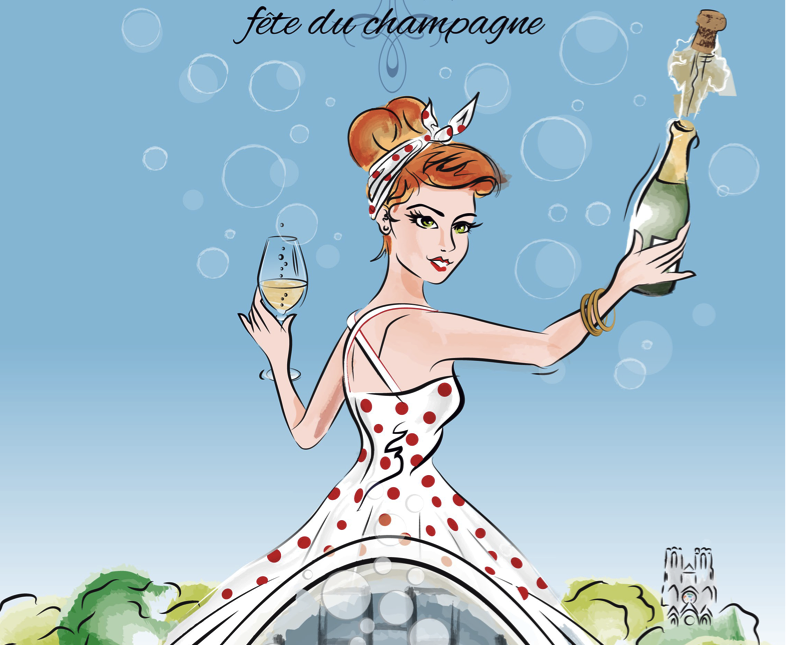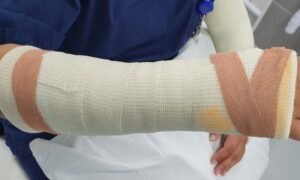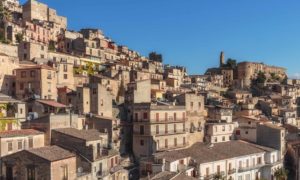We just came back from buying French wine from the source and it was one of those rare trips that turned out to be better than anticipated.
The weather was warm and sunny (especially compared to where we live in the Netherlands), the wine and food pairings terrific and the French ambiance perfect.
So, with the approach of fall, it’s time for another weekend trip, because the grape harvest is underway and there are weekend wine festivals across France.
France has a dozen designated wine regions from Champagne on the north, south to Languedoc on the Spanish border. We can’t cover them all in this (relatively) brief post. And we want to make this practical for other expats who – like us – probably can’t throw down 10,000 euros for a trip.
Finally, though it would be nice to wander for weeks in French wine country, a lot of us – you know – work, so we only have a weekend.
That kind of rules out Bordeaux for a lot of expats since the majority of us live from Paris up into Northern Europe.
Yes, the most extraordinary wines come from a relatively small area around Bordeaux including the “if you have to ask the price, you can’t afford it” premier grand cru of Château Margeaux, Chateau Latour and Petrus. Bordeaux is increasingly a foodie destination, having transformed its offerings from stuffed cabbage back in the day to the 2-star Michelin celebrity chef offerings of L’Hostellerie de Plaisance.
But there are an awful lot of areas that are an easy drive where the wine is good and plentiful and priced at literally 1/500th of what a bottle of Chateau Lafite Rothschild Grand Cru will set you back. And I’m going to be brutally honest about some of the regions. You’ll see what I mean. Basically, we’re including the places we’ve been, or would really, really like to visit.
Let’s take a quick look at what’s going on:

THE VIEW OF ALSACE FROM ABOVE RODERN
Alsace
Right now, Alsace is where the action is. It’s a quick trip for many expats in Europe and everything is a bargain from the wine to the food to the gas.
The trouble is, it’s kind of discovered now, and a lot of what used to be quaint villages such as Riquewihr are now selfie settings, seriously commercial and tourist-packed. That said, many of the authentic wine villages such as Rodern remain quiet and undisturbed except for people like us, scouring this oh-so picturesque area for great wines. And the grape harvest has begun!
The upside to being discovered is that there are more and better places to wine, dine and stay.
• St. Hippolyte, one of the remaining quaint villages on the Alsatian wine road, his having a New Wine Festival each weekend from now through 24 Sept. The festival includes new wines and local foods such as tart flambé. I wish I could link to a decent website, but there isn’t one. Just go ….
• You can actually go into the fields and “harvest” with the owners of Xavier Mueller, then celebrate with a meal.
From the website:
A unique experience of the grape harvesting in the Alsatian vineyard …
The wine grower Xavier Muller presents you the techniques of grape harvesting, then accompanies you in the vineyard for one-two hours of grape harvesting. Back to the domain for a presentation of the grape transformation into wine then tasting and meal (according to the chosen service). At the end of the day, you get a diploma!
This is an unpublicized opportunity to share a friendly moment with the wine grower.
Formulae proposed during the period of the grape harvesting (according to the ripening of grapes): Formulae 1: morning without meal: 9 am-12 pm : 30 € / ad.
Formulae 2: afternoon without meal : 2 pm-5 pm: 30 € / ad.
Formulae 3 : morning with meal: 9 am- 2pm: 45 € / ad.
Teens (12-16 years): 25€/ half day (40€ meal included)
Contact the Tourist Office 2 days before the date chosen
• If you want the full experience, you can stay with vintner Clement Klur at his winery and vineyards.
Vignoble Klur has not one but three locations to stay, and a variety of accommodations… in the Medieval village of Riquewihr, in the Vosges Mountains or on his wine estate!
The website sucks, so it looks like the only way to get info is to book, or to call.
That said, the reviews on TripAdvisor are glowing!
Other options: We’ve stayed a lot of places in Alsace ranging from Strasbourg to Colmar. I have to say the Grand Hotel Bristol at the Colmar train station was pretty nice and dirt cheap.
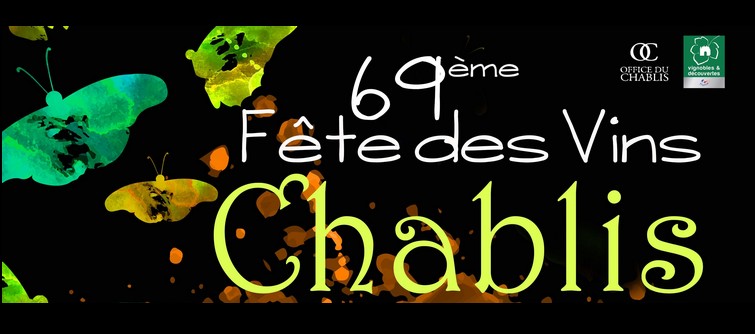
Chablis
A two-hour drive southeast of Paris is the Chablis region, the northern most section of the larger Burgundy (Bourgogne-Franche-Comté) wine region. Chablis is made from the same grape as Chardonnay. Though it’s just west of Alsace, the climate is cooler and higher and the wines drier and – I don’t know – edgier, with a distinct after-taste. Also, they don’t oak the whites here.
This is a connoisseur favorite.
• The vintner that gets the most pub is Domaine Laroche. This is a serious business which sells high-end chablis and burgundies and runs a visitor-friendly vineyard with its own hotel.
This is a kind of a chi-chi deal, though there are lots of options from a simple tour to a 275-euros-per-night VIP Welfare Weekend package deal that includes tastings, dinner, lodging and even a massage.
THAT sounds so good right about now.
• There’s a huge wine wingding coming up and you can make it if you plan now. The Fête des Vins Chablis is scheduled for 21 and 22 October in the town of Chablis. Though there will be movie stars, for the rest of us, it looks pretty casual, with 5 euro glasses of chablis and the locals there to talk wine with you.
The region of Chablis has a terrific website, with lots of events and beautiful graphics.
Champagne
This is a region very close to major expats centers in Belgium, Germany and the Netherlands. And it’s fun. The main city is Reims, the city with the famous cathedral and the “Little Red School House” where the Germans signed the first of two surrender documents to end World War II.
Otherwise, Reims (pronounced “rrennse” in French) is no Paris. But the Champagne … the Champagne is crazy good.
The problem is, like Bordeaux, a lot of the big Champagne estates are closed to the public. OR, you have to pay a stiff entry fee.
Here’s one that’s open, and you can buy from the vintner:
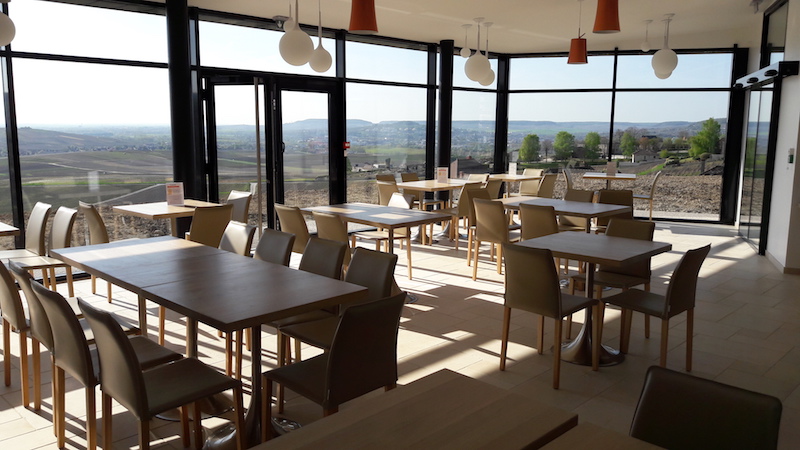
• Champagne Tribaut, Hautvillers, which just opened a new reception-sale facility with panoramic views of the vineyards.
The Tribaut, a family-run terroir, produces wines that are fairly highly rated. You can see their ratings here. Prices start at 10 euros for a demi-bouteille, and go to 120 euros for a Jéroboam Grande Cuvée Spéciale, a bottle so big you’ll have to rent a trailer to get it home.
• This is cool … Boutique vintner Laherte Frères has a traditional French stone house where you can “stay in the middle of the vines,” according to their website.
From the website:
The property comprises 3 floors. The ground floor consists of a dining room, a living room and a kitchen. On the first floor, 2 large bedrooms with double beds plus 1 bed of 90. On the second floor, 3 rooms with sloping ceilings with 2-person beds. Shower and toilet in each room. And to enjoy the pleasures of the open air, a closed inner courtyard, a terrace, garden furniture with barbecue, plus parking.
It doesn’t get any more authentic than that! And they have great Champagne.
• Festivals: Unfortunately, the biggest annual Champagne event, La Champenoise, is in June. BUT, the city of Épernay has a little sumpin’ sumpin’ going on every weekend including tastings. Here’s their website.
Here’s the best website for an overview of what the Champagne region has to offer.
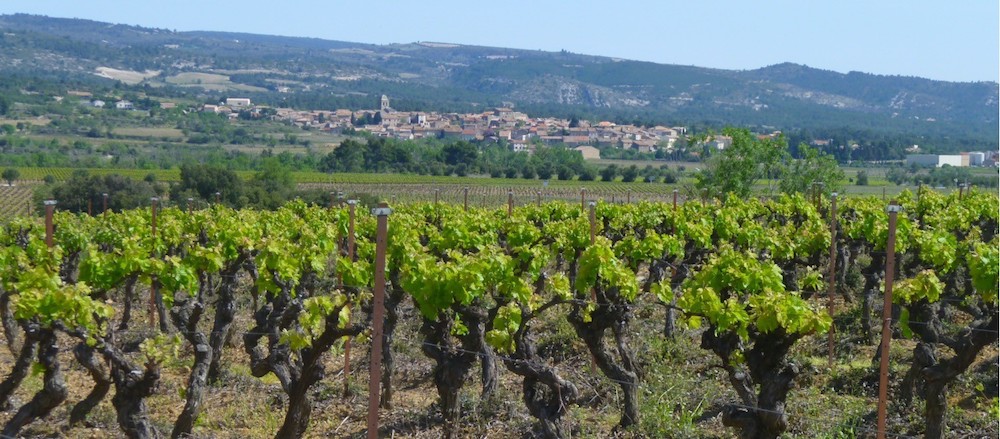
Languedoc
This is too far for most of us to make it in a weekend. If you have some time, this area in southern France is lovely. But is it worth the drive?
I’ve been drinking wine in Languedoc in far southwestern France since I was in college and I can tell you this … in the bad old days, most of what was produced there (and the region produced a LOT of wine) wasn’t very good.
Whaaat? I’m just being honest.
I don’t know if the weather is too hot or the grapes are inferior. I still buy the stuff thinking, “This is the year I taste my first decent Pay d’Doc bottle,” and it’s yet to happen. Wines from Languedoc are getting better, yes … but they still aren’t that great.
With one notable exception.
Minervois.
Years ago, we went on vacation to the small town of Quarante, then ventured out to buy wine. We stumbled into a cave near Carcassonne, the name of which I’ve long since forgotten. But the Minervois, a red that reminded me of a Côte du Rhône, was the freakin’ bomb. Spicy and at about 14 percent alcohol, intoxicatingly good.
Unlike the rest of France, most of the winemakers in the region are tiny independent operations. Clos Centeilles and Domaines Borie de Maurel and La Combe Blanche are probably the biggest.
Most of the reliable wine guides state that you have to just hit the road and go find the caves making really good Minervois. Which could turn into the kind of memorable trip we had.
• Time your visit for Les Primeurs d’Oc Festival. The festival – an hour from the Minervois region in Perpignan – takes place on the third Thursday in October, which this year is the 19th. The festival marks end of the harvest and beginning of the new vintage … and several more parties.
Pays d’Oc IGP vins de primeur are white, red and the rosé made mostly from Chardonnay and Sauvignon grapes (for the whites) and Syrah and Merlot (for the reds.)
• Stay at the vineyard: Le Pech d’Andre has been a family vintner since the 18th century, according to the website. When they’re not making wine, Mireille and Phillipe Andre run a B&B, with cottages and gîte space accommodating two to eight people. And there’s a pool.
Send us your tips about great destinations we need to post about: [email protected]
Co-CEO of Dispatches Europe. A former military reporter, I'm a serial expat who has lived in France, Turkey, Germany and the Netherlands.


